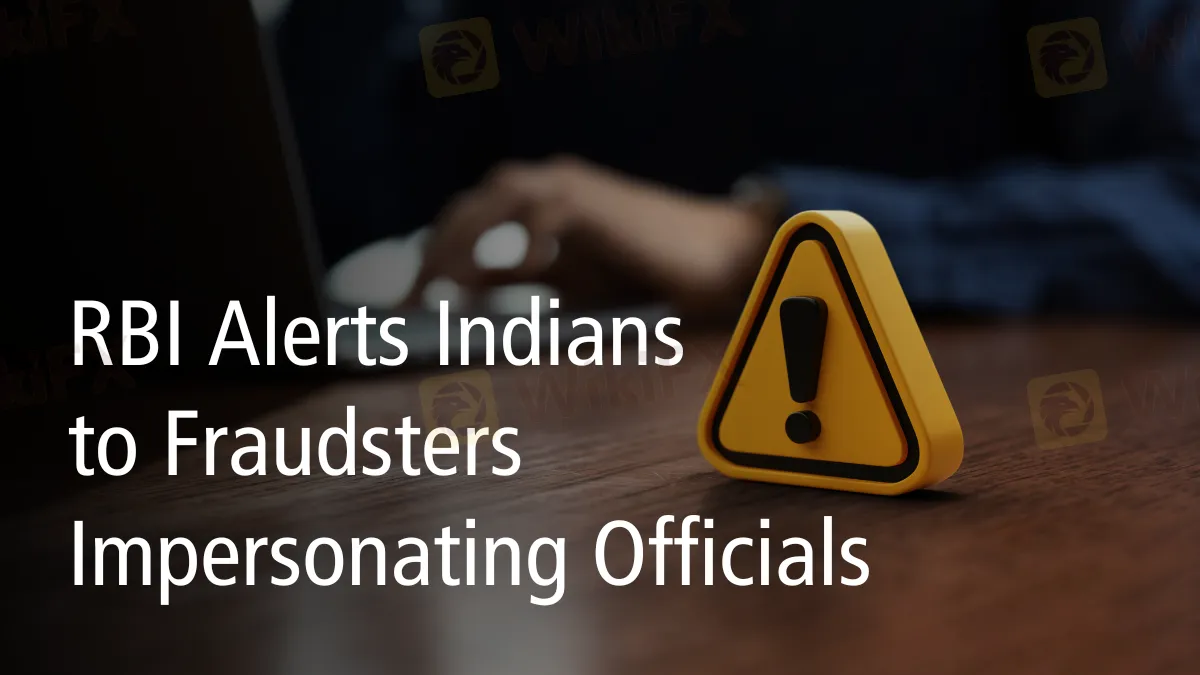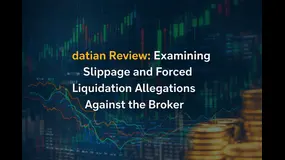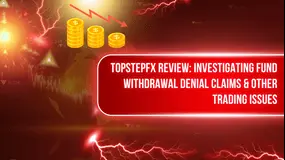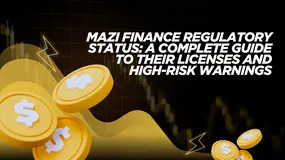WikiFX Valentine's Message | Trade Safely, Together Every Step of the Way
In the Forex Market, Trust Is Not a Promise — It’s Verified Through Safety, Transparency, and Support
简体中文
繁體中文
English
Pусский
日本語
ภาษาไทย
Tiếng Việt
Bahasa Indonesia
Español
हिन्दी
Filippiiniläinen
Français
Deutsch
Português
Türkçe
한국어
العربية
Abstract:RBI warns Indians about fraudsters posing as officials, using fake documents and intimidating tactics. Stay alert to avoid falling victim to these scams.

The Reserve Bank of India (RBI) has issued a severe warning to the public over the rising threat of fraudsters impersonating its personnel. These fraudsters utilize sophisticated strategies to trick unwary people and organizations, sometimes impersonating RBI workers or government officials to obtain money under false pretenses.
The RBI has discovered that these fraudsters employ forged RBI letterheads, email addresses, and other official-looking papers to persuade their victims of their credibility. Their basic strategy is approaching small and medium-sized firms by pretending to provide lucrative government contracts or initiatives. To guarantee these phony transactions, the scammers want a “security deposit,” which they promise would result in big payouts in the future.
In addition to attacking companies, these imposters entice people with promises of lottery winners, cash transfers, international remittances, and government programs. The RBI has said that it does not send emails or communications involving the distribution of lottery money or any similar promotions. The public is advised to be wary of any message that promises quick money or asks for personal or financial information.

The RBI has also highlighted a particularly concerning trend: fraudsters use threatening techniques to compel their victims. These crooks often impersonate RBI officials and call victims, threatening to shut down or deactivate their bank accounts if they do not meet their demands. The requests might include providing personal information, account information, or one-time passwords (OTPs). In certain circumstances, users are forced to install unapproved and unverified programs via links given by scammers.
The RBI has also advised against cases in which fraudsters impersonate government officials or RBI personnel, accusing victims of participation in illicit activities such as money laundering, counterfeiting, or suspicious financial transactions. These threats are intended to cause fear and drive victims to comply.
Furthermore, some fraudsters have been caught claiming accreditation or registration with the RBI to market unlicensed digital lending applications and other questionable financial services. The RBI has urged the public not to trust any websites or applications claiming to be RBI-accredited without sufficient verification.
In its statement, the RBI strongly advised the people to be watchful and not fall victim to these fraudulent schemes. The central bank continues to monitor these operations and is dedicated to safeguarding the people from financial fraud.
Stay protected! For more on this and other financial safety updates, visit the WikiFX News page for the latest insights.

Disclaimer:
The views in this article only represent the author's personal views, and do not constitute investment advice on this platform. This platform does not guarantee the accuracy, completeness and timeliness of the information in the article, and will not be liable for any loss caused by the use of or reliance on the information in the article.

In the Forex Market, Trust Is Not a Promise — It’s Verified Through Safety, Transparency, and Support

Did you face losses due to a sudden change in the trading price on the datian platform? Were your transaction records deleted by the Hong Kong-based forex broker? Did the broker liquidate your trading account multiple times despite not reaching the stage where it mandated this move? Have you experienced heavy slippage on the trading platform? Concerned by these issues, traders have complained about the broker online. We will let you know of these with attached screenshots in this datian review article. Keep reading!

Did you face constant rejections of your fund withdrawal applications by TopstepFX? Have you been denied withdrawals in the name of hedging? Did you witness an account block without any clear explanation from the forex broker? There have been numerous user claims against TopstepFX regarding its withdrawals, payout delays and other issues. In the TopstepFX review article, we have investigated the top complaints against the US-based forex broker. Keep reading!

When choosing a broker, the first question is always about safety and legitimacy. Is my capital safe? For Mazi Finance, the answer is clear and worrying: Mazi Finance is an unregulated broker. While the company, MaziMatic Financial Services LTD, is registered in the offshore location of Saint Lucia, this business registration does not replace strong financial regulation from a top-level authority. Independent analysis from regulatory watchdogs shows a very low trust score, made worse by official warnings from government financial bodies and many user complaints about serious problems. This article provides a clear, fact-based analysis of the Mazi Finance regulation status. Our goal is to break down the facts and present the risks clearly, helping you make an informed decision and protect your capital.
